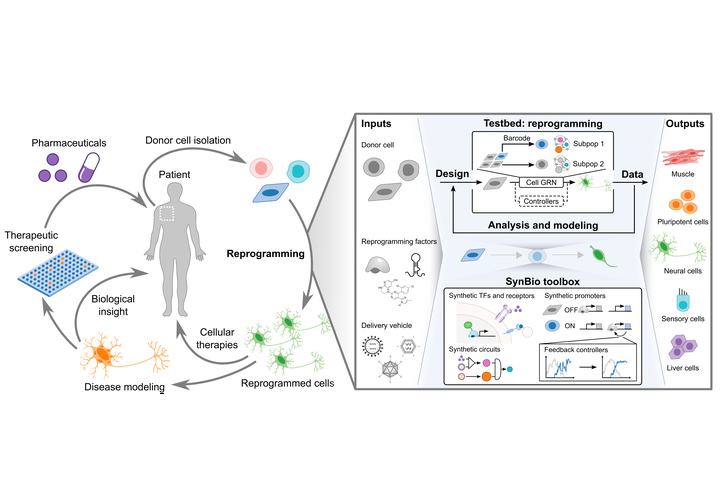
Abstract
Cellular reprogramming drives cells from one stable identity to a new cell fate. By generating a diversity of previously inaccessible cell types from diverse genetic backgrounds, cellular reprogramming is rapidly transforming how we study disease. However, low efficiency and limited maturity have limited the adoption of in vitro-derived cellular models. To overcome these limitations and improve mechanistic understanding of cellular reprogramming, a host of synthetic biology tools have been deployed. Recent synthetic biology approaches have advanced reprogramming by tackling three significant challenges to reprogramming: delivery of reprogramming factors, epigenetic roadblocks, and latent donor identity. In addition, emerging insight from the molecular systems biology of reprogramming reveal how systems-level drivers of reprogramming can be harnessed to further advance reprogramming technologies. Furthermore, recently developed synthetic biology tools offer new modes for engineering cell fate.